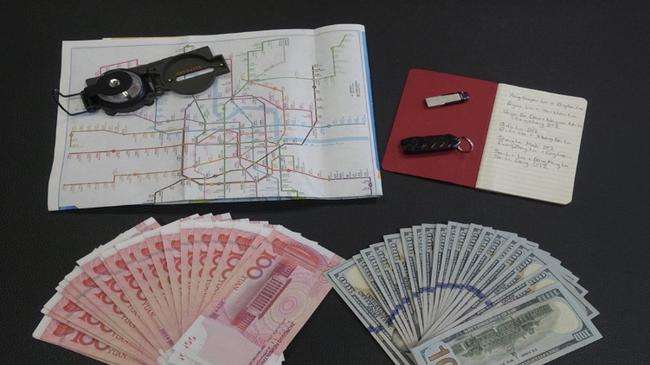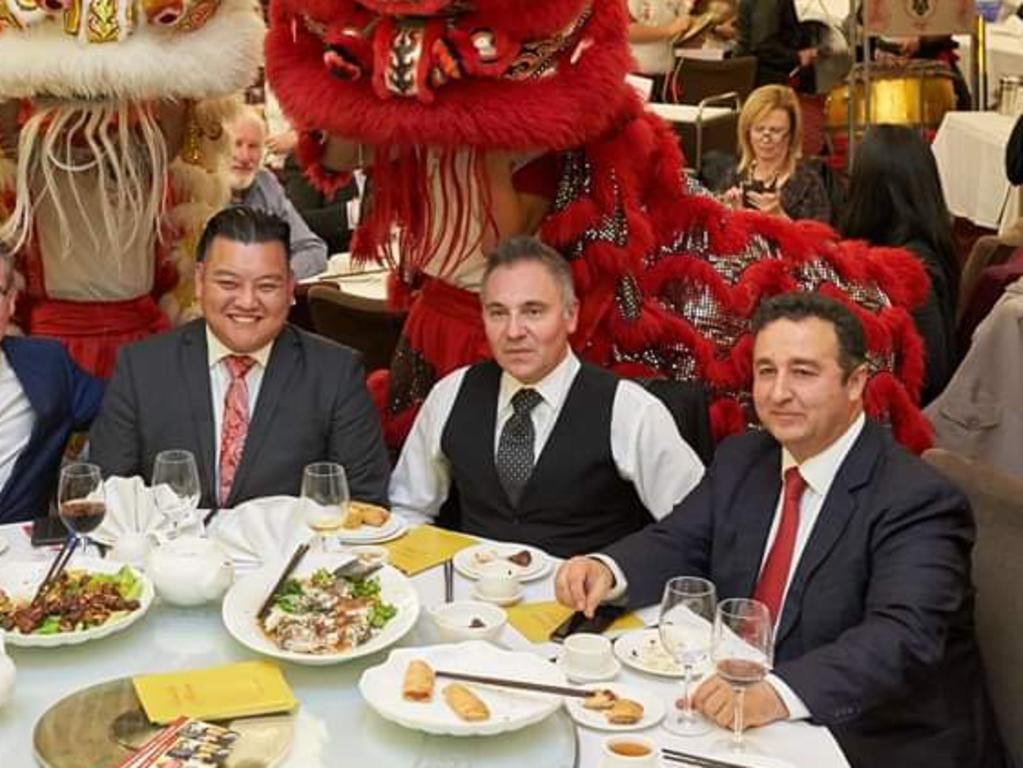China’s Global Times accuses Australia of spying campaign
China’s Global Times claims Australia is waging an ‘intensifying espionage offensive against China’ and that Australian spies were caught ‘red-handed’.

Beijing’s ruling Communist Party has used one of its state-owned media outlets to accuse the Morrison government of waging an “intensifying espionage offensive against China”, upending allegations that the regime is behind sophisticated foreign interference operations on Australian soil.
China’s The Global Times alleges Australia has sent agents to China to “spy, gather intelligence and recruit assets”. It claims Australian spies were caught “red-handed” two years ago with espionage equipment including a compass, a USB flash drive, a notebook, a mask, gloves and a map of Shanghai.
The Times article says its information comes from an unnamed “source” with a Chinese law-enforcement agency, and publishes as alleged evidence a photo provided by the source showing “spy tools” and “intelligence funds” confiscated from Australian spies.
According to the law-enforcement source, Australia is a veteran in spying against other countries and is acting like “the thief who is crying ‘stop the thief’” by complaining about foreign interference while stepping up “infiltration, spying and technological theft operations against China”.
Published just days after ASIO raids on the Sydney home and office of a NSW Labor MP with links to CCP organisations, the Global Times article further alleges Australia’s government has instigated defections among Chinese nationals, spied on Chinese students and organisations in Australia and fed “fake news to media to hype up ‘the China espionage theory’”.
The Australian government, it alleges, attempted “in early years” to install wiretaps in the Chinese embassy in Canberra and a photo is shown of an eavesdropping device found at the embassy.
The article claims Feng Chonyi, a Chinese-Australian academic from University of Technology Sydney, has been an “informant” to Australian security intelligence agencies and provided them with much information as a “China studies expert” to “stigmatise and smear China on some anti-China foreign media outlets”.
Dr Feng told The Australian claims made against him in the Global Times, attributed to its “Chinese law-enforcement agency” source, were “outrageous slander” and “false”.
“I don’t know why they would raise this again,” Dr Feng said. “The Chinese security apparatus detained me in 2017 when I was doing field work in China. They subjected me to intensive interrogation for 10 days. I hadn’t done anything wrong so they released me.”
The UTS academic, who lives in Sydney, said he believed the Australian government’s concerns about foreign interference were credible and it was acting with integrity, while the Global Times article was part of the Chinese government’s “information war”.
“They are using propaganda in order to undermine the work that has been done by the Australian government,” Dr Feng said.
The allegations aired in the Global Times reflect a deterioration in relations between the governments of China and Australia that has worsened during the COVID-19 crisis as Scott Morrison has sought international support for an inquiry into how the virus spread from Wuhan province. The Prime Minister has also said any covert foreign interference in Australia would be called out.
The timing of the Global Times article, and another by the Times’s WeChat account, appear more specifically linked to Friday’s raids by ASIO and Australian Federal Police that targeted NSW Labor MP Shaoquett Moselmane and his part-time staffer, John Zhang.
The Australian is not suggesting ASIO’s concerns are justified, just that is what is being considered and investigated.
The raids were the first test of enhanced national security and espionage laws that were passed by the Australian parliament in late 2017 in response to growing concerns about foreign interference.
The Global Times singles out reporting of the raid on Mr Moselmane’s home and office “searching for evidence to support allegations of a Chinese government plot to influence a serving politician”. It is criticises reports about alleged Chinese spy and defector Wang Liqiang last year for attempting to influence local public opinion with fake news.






